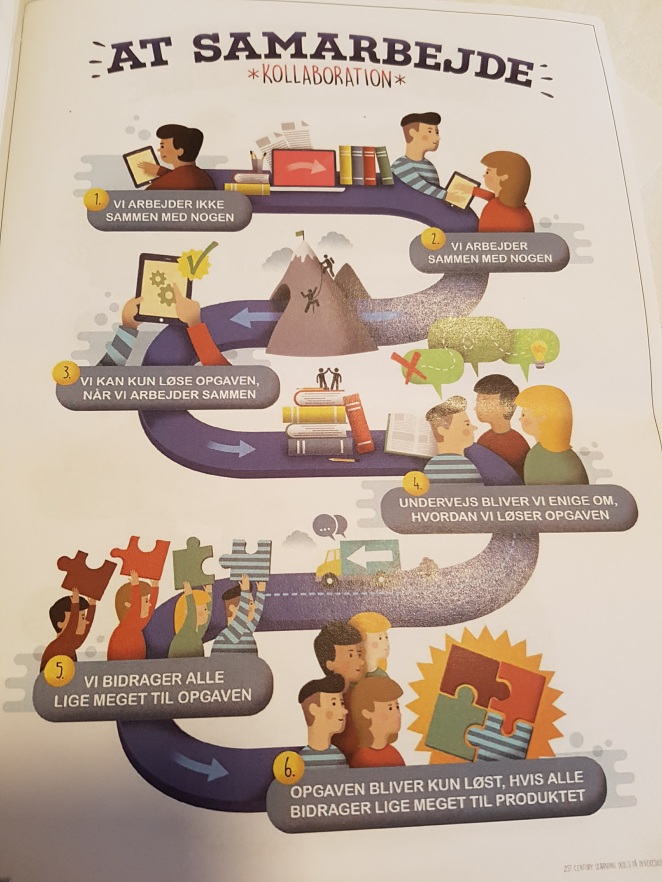
This week I went to the Danish Education Fair in Copenhagen to participate in a program focusing on integrating eTwinning and 21st Century Skills in projects with students. I saw great stands focusing on student projects, literacy, coding and games, among many others! There was also a program of great lectures, some of which were open to all teachers! From all these impressions there are two lessons I want to bring back to my students and colleagues:
- Breaking down 21st Century Skills in steps understandable for my students
I have planned and participated in eTwinning projects a few years now, in an ongoing effort to open my classroom and to go paperless. At this Education Fair, I learnt how the Danish Ministry of Education has mapped six of these 21st Century Skills, and have had students’ help to make them understandable for their peers. Look at this picture from 21Skills.dk to see what I mean:

My goal in eTwinning projects is to let my students work in international teams, communicating and solving tasks together to make a product. This way of breaking down the skill of collaboration into levels; where 1 is no collaboration and 6 is when the students are co-creators and fully collaborate to make a product, helps me understand this skill better. A vital requirement if I am going to succeed in explaining it to my students! In my next eTwinning project “Exploring Fables Together”, our goal is to work towards reaching level 6 in student collaboration. Do you think this kind of mapping of a competency is useful too?
2) Integrative Complexity
The lecture which made an impact on me at this Education Fair was called “Integrative Complexity Thinkers are Prepared for Digital Citizenship” by Dr Eolene Boyd-MacMillan from the University of Cambridge, UK. Dr Boyd-MacMillan explained how social media can be an entry into an echo chamber, but with guidance, our students can also enter a learning galaxy of new ideas and information. How can we help them past the echo chamber and into the galaxy? A definition of integrative complexity (IC) offered by Prof Peter Suedfeld & Prof Philip Tetlock is that it is a thinking style… the how of thinking. Dr Boyd-MacMillan has worked to operationalise the IC concept and found a way to design courses to help students develop their way of thinking and solving problems. No small feat! Their goal:

This is an important goal for most teachers: Helping our students become active participants and contributors in our civic society. Integrative Complexity can be hard to develop. Over-simple, polarised positions, and maybe fake messages, are attractive to us because they are easy for our brain to process. It is harder to develop high-level integrative complexity if we remain in an echo-chamber. Digital citizenship can accelerate learning. We can help our students increase their understanding by this acknowledgement: We can all be part of the problem. Equally, we can be part of the solution; to respect and listen to each other to learn.
These were the lessons I wanted to share the most from the Danish Education Fair. Did I manage to visualise how competencies can be mapped out, and to give you an introduction to integrative complexity? I hope so. I’d love to hear your ideas too, so please leave a comment if you want to. Inquiring minds want to know.
